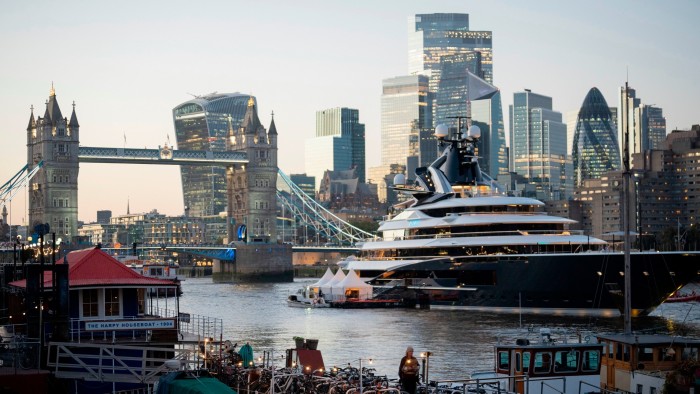Unlock the Editor’s Digest for free
Roula Khalaf, Editor of the FT, selects her favourite stories in this weekly newsletter.
Asked in 2006 whether he risked fomenting class war by questioning the unfairness of the tax system, Warren Buffett responded: “There’s class warfare, all right, but it’s my class, the rich class, that’s making war, and we’re winning.” Nearly 20 years on, the struggle continues, and the dilemma for politicians caught in the middle is more acute than ever.
Switzerland is facing a referendum this autumn on a 50 per cent inheritance tax, based on a 2022 proposal by its far-left Young Socialists. In New York City, left-wing Democrat Zohran Mamdani seems set to win the party’s mayoral primary, running on a programme that includes raising taxes on the rich to fund free buses and childcare. The UK has scared away some wealthy foreigners by abolishing its attractive non-dom regime and making their global assets liable to inheritance tax.
Elsewhere politicians are clamouring to attract the rich. Nearly 70,000 wealthy people have applied for the $5mn golden Trump Card, which grants foreigners legal residency in the US. Italy is still benefiting from an inflow of rich expats, taking advantage of its flat tax on their foreign income, despite having doubled the annual levy last year to €200,000. Dubai, Monaco and others continue to lure multimillionaires eager to minimise their taxes.
Life has become marginally more tiresome for the wealthy. The end of banking secrecy and improved information exchange between tax authorities mean they can no longer park their capital in tax havens and live somewhere else. Instead, they may have to shift their residency. But by paying for the best legal and accounting advice available, they can still largely pick and choose their tax rate and decamp to the next most alluring enclave when a government tries to squeeze more income from them.
Such high-end nomadism can be considered undignified. One of the privileges of extreme wealth is that you can pay to live anywhere, instead of having to scurry around the globe chasing a few percentage points of tax advantage. Indeed, billionaires have an interest in funding public services, if only to ensure local policing for their properties and adequate roads for their limousines, not to mention the increasing need for military defences.
Levelling the highly manicured fiscal playing field for the super-rich would require international co-operation. The idea of a 2 per cent blanket annual levy on billionaires’ wealth was discussed at last year’s G20 summit in Brazil, which pledged to “engage cooperatively to ensure that ultra-high-net-worth individuals are effectively taxed”. But, while advocates believe the plan still has momentum, that was before Donald Trump returned to disrupt the world order.
The argument for setting policy to attract wealthy residents is that they bring investment and spend more than ordinary taxpayers locally. This increases the take from consumption taxes. They also back philanthropic causes. Rich and non-rich then rub along.
But governments are facing demographic change, low growth and the increasing costs of welfare, defence and climate change mitigation. They are highly vulnerable to the counteraccusation that rich residents who are unrooted and uninterested in the local community simply push up property prices and push out “ordinary working families” to whom politicians appeal for votes.
A lack of transparency and data make it hard for policymakers to perform the sensible cost-benefit analysis that might justify whether, how, and how much to tax the rich. The politics of greed and envy fills the vacuum. If such tension and inequality cannot be resolved, then expect more skirmishes in the class war, from Bern to Brooklyn.
